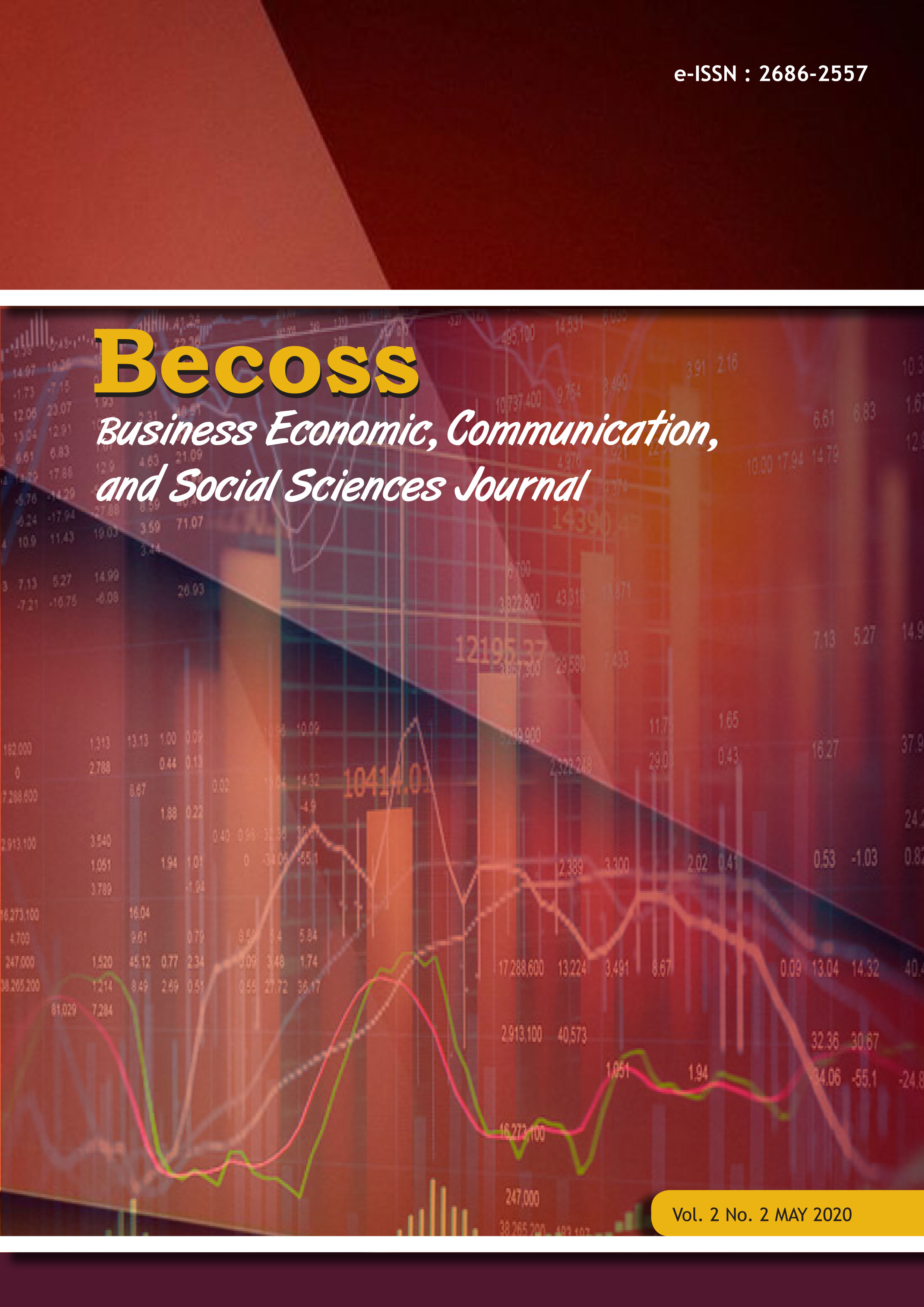Determinant Analysis of Open Unemployment Level in Banten Province, 2018 Using Panel Data Regression
DOI:
https://doi.org/10.21512/becossjournal.v2i2.6332Keywords:
Open Unemployment, Panel Data Regression, Fixed Effect ModelAbstract
This study aims to analyse the relationship of crude school participation rate, the number of poor people, and the GDRP growth rate to the open unemployment rate in Banten. The analytical method used in this study is panel data regression with fixed effect model estimation which is processed using statistical software EViews 10. The data that are used in this study are secondary data from Badan Pusat Statistik (BPS), by taking annual data for each district in Banten province from 2011 until 2018. The results of this study indicate that the GDRP growth rate significantly affects the open unemployment rate, but the crude school participation rate and the number of poor people do not significantly affect the open unemployment rate in Banten.
References
Baltagi, Bagi (2005). Econometric Analysis of Panel Data, Third Edition. John Wiley & Sons.
Nachrowi, N. Djalal dan Hardius Usman (2006). Pendekatan Populer dan Praktis Ekonometrika untuk Analisis Ekonomi dan Keuangan, Jakarta: LPFE Universitas Indonesia.
Apriliawan, D., Tarno, & Hasbi, Y. (2013). Pemodelan Laju Inflasi di Provinsi Jawa Tengah Menggunakan Regresi Data Panel. Jurnal Gaussian, Vol. 2(4), 301-321.
Prasanti, T.A., Triastuti, W., & Agus, R. (2015). Aplikasi Regresi Data Panel Untuk Pemodelan Tingkat Pengangguran Terbuka Kabupaten/Kota di Provinsi Jawa Tengah. Jurnal Gaussian, Vol. 4(3), 687-696.
Susanti, S. (2013). Pengaruh Produk Domestik Regional Bruto, Pengangguran dan Indeks Pembangunan Manusia terhadap Kemiskinan di Jawa Barat dengan Menggunakan Analisis Data Panel. Jurnal Matematika Integratif, Vol. 9(1), 1-18.
Downloads
Published
How to Cite
Issue
Section
License
Authors who publish with this journal agree to the following terms:
- Authors retain copyright and grant the journal right of first publication with the work simultaneously licensed under a Creative Commons Attribution License - Share Alike that allows others to share the work with an acknowledgment of the work's authorship and initial publication in this journal.
- Authors are able to enter into separate, additional contractual arrangements for the non-exclusive distribution of the journal's published version of the work (e.g., post it to an institutional repository or publish it in a book), with an acknowledgment of its initial publication in this journal.
- Authors are permitted and encouraged to post their work online (e.g., in institutional repositories or on their website) prior to and during the submission process, as it can lead to productive exchanges, as well as earlier and greater citation of published work.
USER RIGHTS
All articles published Open Access will be immediately and permanently free for everyone to read and download. We are continuously working with our author communities to select the best choice of license options, currently being defined for this journal as follows: Creative Commons Attribution-Share Alike (CC BY-SA)






